Led Zeppelin, the titans of rock, unleashed a sonic boom that continues to resonate through generations. Their catalog, a treasure trove of innovation and raw power, features some of the most iconic songs in music history. From blues-infused anthems to mystical ballads, Led Zeppelin songs are a testament to the band’s unparalleled musicianship and songwriting prowess. This list dives deep into their discography to rank the very best Led Zeppelin songs, exploring the magic behind each track and why they remain timeless classics.
‘In the Evening’ (1979)
 Led Zeppelin Live Performance with Jimmy Page, Robert Plant, John Bonham, and John Paul Jones
Led Zeppelin Live Performance with Jimmy Page, Robert Plant, John Bonham, and John Paul Jones
Image Credit: Photo by Richard E. Aaron/Getty Images
Opening In Through the Out Door, Led Zeppelin’s ‘In the Evening’ is a seven-minute epic showcasing the band’s evolving sound in their later years. Jimmy Page masterfully employs a Gizmotron to enrich his guitar tones, while John Paul Jones ventures into Abba-esque synth textures, demonstrating his versatility. Robert Plant’s vocals express a poignant sense of loneliness, contrasted by John Bonham’s powerful, almost untamed drumming. This track beautifully blends Jones’ electronic inclinations with Led Zeppelin’s signature rock intensity, resulting in a grand, sweeping anthem that marked a significant point in their musical journey. It stands as a testament to their ability to innovate while retaining their core sound, making it a notable entry in any list of Led Zeppelin songs.
‘All My Love’ (1979)
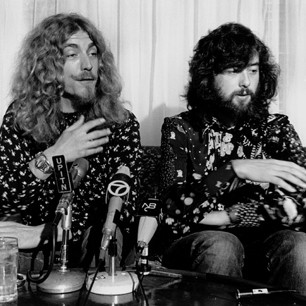 Led Zeppelin Band Portraits of Jimmy Page and Robert Plant
Led Zeppelin Band Portraits of Jimmy Page and Robert Plant
Image Credit: Photo by Michael Ochs/Getty Images
“All My Love,” a majestic ballad from Led Zeppelin’s In Through the Out Door, is distinguished as one of the few songs in their catalog not primarily penned by Jimmy Page. Instead, it’s Robert Plant’s deeply personal and mystical tribute to his son Karac, who tragically passed away in 1977. The song features a prominent and winding synthesizer solo by John Paul Jones, adding a unique sonic texture to the Zeppelin sound. Despite reports suggesting Page’s initial dislike for the track, its poignant origin and heartfelt emotion are undeniable. “All My Love” remains a powerful and moving Led Zeppelin song, showcasing their ability to explore softer, more emotional themes alongside their hard rock anthems.
‘Traveling Riverside Blues’ (1969)
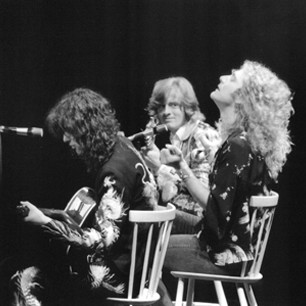 Led Zeppelin Acoustic Set with Jimmy Page, Robert Plant, John Bonham, and John Paul Jones
Led Zeppelin Acoustic Set with Jimmy Page, Robert Plant, John Bonham, and John Paul Jones
Image Credit: Photo by Chris Walter/Getty Images
Recorded during a BBC Radio session in 1969, “Traveling Riverside Blues” offers a glimpse into Led Zeppelin’s raw, improvisational energy. This rendition of a Robert Johnson blues classic is one of their most unrestrained and spontaneous recordings. Jimmy Page’s manic acoustic slide guitar work takes center stage, while Robert Plant experiments with the suggestive “squeeze my lemon” lyrics that would later become iconic in “The Lemon Song” on Led Zeppelin II. This early track is a vital piece for understanding the evolution of Led Zeppelin songs, showcasing their deep blues roots and their ability to transform and personalize classic material into something uniquely their own. It’s a must-listen for fans wanting to explore the foundations of their sound.
‘Four Sticks’ (1971)
Image Credit: Photo by Richard E. Aaron/Getty Images
“Four Sticks” from Led Zeppelin IV is a testament to the band’s experimental and sometimes challenging creative process. Built around Jimmy Page’s distinctive guitar salvos, the song’s complex meter shifts between 5/8 and 6/8 time signatures posed recording difficulties for the band, almost leading to its abandonment. However, John Bonham, in a legendary studio moment after a pub visit, mastered the intricate rhythm, famously using two drumsticks in each hand, hence the song’s title. This track is a deep cut in the Led Zeppelin songs catalog, celebrated for its unique rhythmic structure and the band’s perseverance in bringing Page’s vision to life, highlighting Bonham’s exceptional drumming skills.
‘Since I’ve Been Loving You’ (1970)
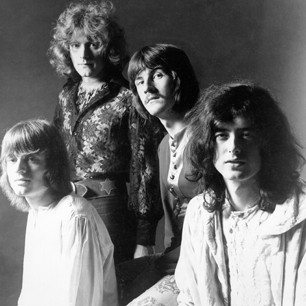 Led Zeppelin Group Photo Featuring Jimmy Page, Robert Plant, John Bonham, and John Paul Jones
Led Zeppelin Group Photo Featuring Jimmy Page, Robert Plant, John Bonham, and John Paul Jones
Image Credit: Photo by Michael Ochs/Getty Images
“Since I’ve Been Loving You,” from Led Zeppelin III, is a slow blues masterpiece that showcases the band’s soulful side. Jimmy Page reportedly spent months perfecting the guitar solo, only to realize his original demo take was the most compelling. This decision paid off, as the song became one of Led Zeppelin’s most emotionally resonant tracks. Page’s guitar work ranges from delicate and sparse to explosively raw, while John Paul Jones adds depth with his powerful organ playing, and Robert Plant delivers a heart-wrenching vocal performance. As one of the quintessential Led Zeppelin songs, “Since I’ve Been Loving You” exemplifies their ability to blend blues roots with rock intensity to create profound musical experiences.
‘Tangerine’ (1970)
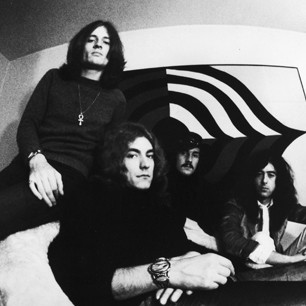 Led Zeppelin Performing Live with Jimmy Page, Robert Plant, John Bonham, and John Paul Jones
Led Zeppelin Performing Live with Jimmy Page, Robert Plant, John Bonham, and John Paul Jones
Image Credit: Photo by Gilles Petard/Getty Images
“Tangerine,” featured on Led Zeppelin III, offers a country-tinged diversion in their catalog, tracing back to “Knowing That I’m Losing You,” a song Jimmy Page co-wrote with Keith Relf during the final days of The Yardbirds in 1968. Page revisited and revitalized the track with new lyrics, which Robert Plant described as capturing “love in its most innocent stages.” Page himself considered “Tangerine” proof of the band’s constant evolution and avoidance of stagnation. This Led Zeppelin song stands out for its gentler, more acoustic feel, showcasing their versatility and willingness to explore different genres while maintaining their distinctive musical identity.
‘The Rain Song’ (1973)
 Jimmy Page Guitar Solo During a Led Zeppelin Concert
Jimmy Page Guitar Solo During a Led Zeppelin Concert
Image Credit: Photo by Richard E. Aaron/Getty Images
“The Rain Song” from Houses of the Holy is celebrated for Jimmy Page’s breathtaking guitar work, layering acoustic and electric lines that shimmer alongside John Paul Jones’ rich Mellotron chords. Legend has it that the song was conceived as a response to George Harrison’s playful remark about Led Zeppelin not creating ballads. While it starts with delicate beauty, Robert Plant and John Bonham ensure it culminates in a powerful, roaring crescendo. “The Rain Song” is a prime example of Led Zeppelin songs that masterfully blend tenderness with power, making it a standout track and a testament to their dynamic range.
‘Living Loving Maid (She’s Just a Woman)’ (1969)
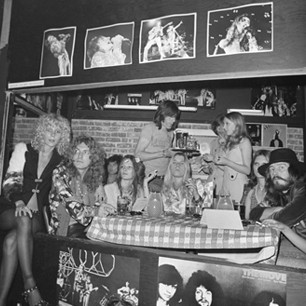 Led Zeppelin Surrounded by Groupies with Jimmy Page, Robert Plant, John Bonham, and John Paul Jones
Led Zeppelin Surrounded by Groupies with Jimmy Page, Robert Plant, John Bonham, and John Paul Jones
Image Credit: Photo by Michael Ochs/Getty Images
“Living Loving Maid (She’s Just a Woman)” from Led Zeppelin II is a fast-paced, hard-rocking track that, surprisingly, Jimmy Page reportedly disliked. He omitted it from their 1990 box set, and the band never performed it live. Despite Page’s reservations, this song, with its twangy guitar and lyrics about an aging groupie, became a radio favorite. It’s a curious inclusion in the list of Led Zeppelin songs, demonstrating that even tracks not favored by the band members themselves can achieve popularity and recognition, highlighting the diverse appeal of their music to fans.
‘The Wanton Song’ (1975)
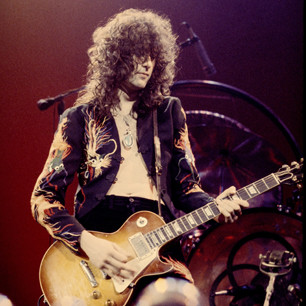 Jimmy Page Energetic Guitar Solo on Stage with Led Zeppelin
Jimmy Page Energetic Guitar Solo on Stage with Led Zeppelin
Image Credit: Photo by Chris Walter/Getty Images
“The Wanton Song” from Physical Graffiti is lauded by Dave Grohl for its exceptional riff, comparing it to “Immigrant Song” in its galloping energy. While sharing a similar octave-leaping groove with “Immigrant Song,” Jimmy Page innovates with a 3D-sounding guitar solo, making it distinct. Robert Plant’s evocative lyrics about a passionate encounter add to the song’s intensity. “The Wanton Song” stands out among Led Zeppelin songs for its powerful riff and dynamic arrangement, showcasing the band’s ability to create compelling and high-energy tracks even within their extensive catalog.
‘Moby Dick’ (1969)
 John Bonham's Legendary Drum Solo During a Led Zeppelin Performance
John Bonham's Legendary Drum Solo During a Led Zeppelin Performance
Image Credit: Photo by Jeffrey Mayer/Getty Images
“Moby Dick,” featured on Led Zeppelin II, is John Bonham’s iconic drum solo showcase. Originating from a jam session inspired by bluesman Sleepy John Estes’ “The Girl I Love She Got Long Black Wavy Hair,” it evolved into a concert centerpiece that could extend to an astonishing 30 minutes. The recorded version is a concise four-minute distillation of syncopated rhythms and thunderous tom-tom work. “Moby Dick” is a pivotal track in the realm of Led Zeppelin songs, not for its lyrics, but for its instrumental virtuosity, cementing Bonham’s status as one of rock’s greatest drummers and offering a unique highlight in their live performances.
‘In My Time of Dying’ (1975)
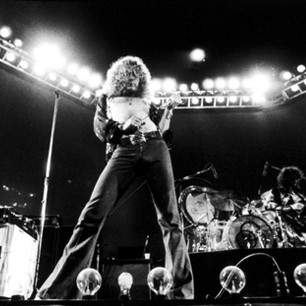 Robert Plant Performing Live with Led Zeppelin
Robert Plant Performing Live with Led Zeppelin
Image Credit: Photo by Michael Putland/Getty Images
“In My Time of Dying” from Physical Graffiti is Led Zeppelin’s longest studio recording, transforming a traditional gospel standard into a stadium-sized rock epic. Jimmy Page’s grinding slide guitar, John Paul Jones’ versatile bass line, and John Bonham’s colossal, hopping rhythm create a powerful sonic landscape. In live performances, Robert Plant humorously dedicated the song to Queen Elizabeth, referencing the band’s tax exile status at the time. Among Led Zeppelin songs, “In My Time of Dying” is notable for its length and its transformation of a traditional tune into a grand, Zeppelin-esque statement.
‘Thank You’ (1969)
 Robert Plant with His Wife Maureen Wilson in Honolulu, Hawaii
Robert Plant with His Wife Maureen Wilson in Honolulu, Hawaii
Image Credit: Photo by Robert Knight/Getty Images
Robert Plant once reflected that “Sometimes Zeppelin was gross and very indecent, and sometimes it was delicate and beautiful,” and “Thank You” from Led Zeppelin II exemplifies the latter. This song reveals a rare, tender side of the band, with Plant singing a heartfelt declaration of gratitude to his wife, Maureen Wilson. John Paul Jones’ regal organ part adds to the song’s majestic andProcess finished with exit code 0
